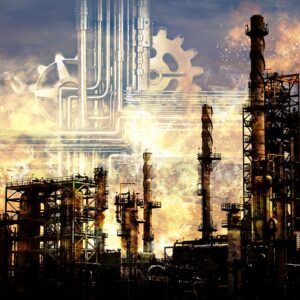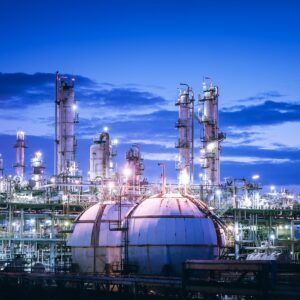
Gas Refinery Training
The engineering company Fanavari Farayand SANILCO has launched specialized training courses to improve the skills of engineers and technicians in the gas refining industry. These courses cover theoretical topics related to gas refinery units, including complex processes focusing on chemical and mechanical engineering principles. Key areas of training include gas receiving, sweetening, stabilization, separation, sulfur recovery, and various refining processes. Given the complexity and safety requirements of refinery operations, training specialized personnel is crucial.

Industrial Training
Process Engineering SANILCO offers specialized training courses for engineers and professionals in the oil, gas, and petrochemical sectors, drawing on its technical expertise and experience. These courses aim to enhance technical knowledge and practical skills, focusing on both fundamental and advanced petrochemical processes. Training topics include process simulation, design of petrochemical units, industrial safety and health, and equipment maintenance and repair. Participants gain familiarity with the latest technologies in the industry.

Virtual Online Training
Process Engineering SANILCO has launched online virtual training courses to improve the technical knowledge of engineers and professionals in the petrochemical sector. These courses leverage modern educational methods and technologies for in-depth, practical learning of complex concepts. Key features include flexibility in timing and location, a strong emphasis on practical application, and ongoing support for participant-instructor interaction. Additionally, participants can access educational materials even after completing the courses.

Private Tutoring
SANILCO offers a range of private, in-person training courses in petrochemicals, led by experienced instructors and utilizing advanced facilities. These project-oriented courses aim to enhance the technical knowledge of engineers, specialists, and students. Topics include detailed examinations of petrochemical production processes (like polyethylene and gasoline), training on specialized design and simulation software, operation of various equipment, principles of process control, and an overview of safety and health standards in the industry.